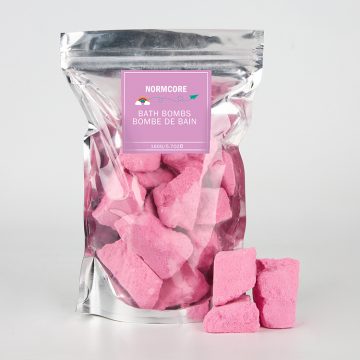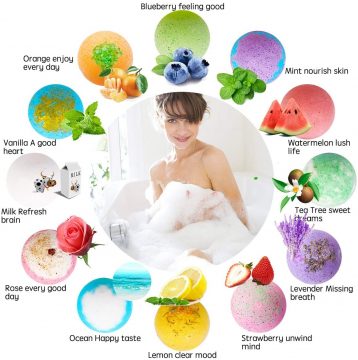1. Simple Ingredients: Opt for bath bomb recipes with simple and minimalistic ingredients. Avoid using harsh additives, strong fragrances, and artificial colorants, as these can potentially irritate sensitive skin.
2. Skin-Friendly Colorants: If you want to add color to your bath bombs, choose natural colorants that are gentle on the skin. Some examples include beetroot powder for pink/red tones and spirulina powder for green tones.
3. Fragrance-Free or Mild Scents: Avoid strong fragrances that can be harsh on sensitive skin. Instead, opt for fragrance-free bath bombs or choose mild, skin-soothing scents like chamomile, oatmeal, or calendula.
4. Oatmeal or Milk Powder: Oatmeal is known for its skin-calming properties. You can add finely ground oatmeal or milk powder to your bath bomb mixture. These ingredients can help soothe and moisturize sensitive skin.
5. Essential Oils Carefully Selected: If you choose to use essential oils, select those that are known for being gentle on the skin. Lavender, chamomile, calendula, and ylang-ylang are examples of essential oils that are generally well-tolerated by sensitive skin.
6. Aloe Vera Gel: Aloe vera gel is known for its soothing and hydrating properties. You can add a small amount of aloe vera gel to your bath bomb mixture to provide a gentle touch of moisture.
7. Patch Test: Before using a new bath bomb on sensitive skin, consider doing a patch test on a small area of skin to ensure there are no adverse reactions.
8. Pre-made Options: If you’re purchasing bath bombs, look for those specifically labeled as suitable for sensitive skin or designed with gentle ingredients.
9. DIY Customization: If you’re making your own bath bombs, you have complete control over the ingredients. You can tailor the recipe to suit your skin’s needs and preferences.
10. Moisturize After Bathing: After your bath, gently pat your skin dry and follow up with a mild, fragrance-free moisturizer to lock in hydration and further care for your sensitive skin.
Remember that everyone’s skin reacts differently, so it’s important to pay attention to how your skin responds to any new product, including bath bombs. If you have severe skin sensitivities or allergies, consult a dermatologist before trying new products on your skin.
Creating or selecting bath bombs that cater to sensitive skin can provide a relaxing and enjoyable bathing experience without causing irritation or discomfort.








